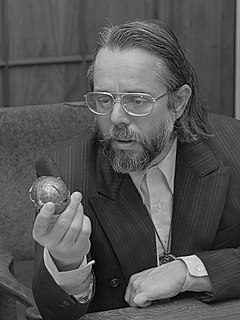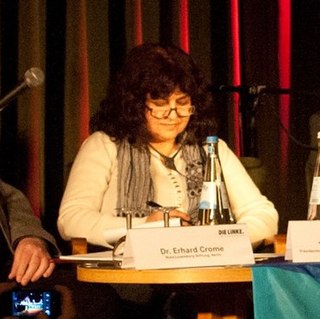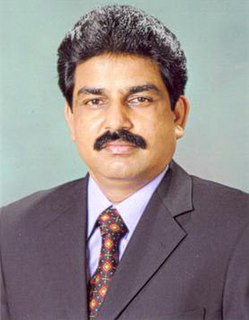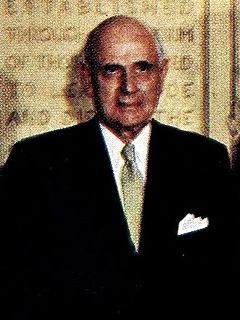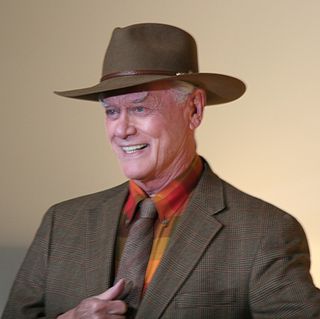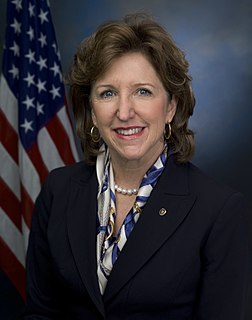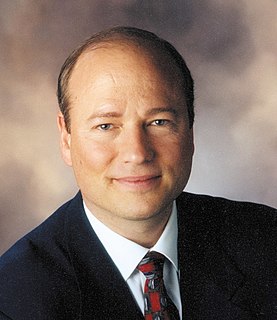Top 1200 Great Religious Quotes & Sayings
Explore popular Great Religious quotes.
Last updated on April 22, 2025.
The great decisions of government cannot be dictated by the concerns of religious factions. We have succeeded for 205 years in keeping the affairs of state separate from the uncompromising idealism of religious groups and we mustn't stop now. To retreat from that separation would violate the principles of conservatism and the values upon which the framers built this democratic republic.
The great writers to whom the world owes what religious liberty it possesses, have mostly asserted freedom of conscience as an indefeasible right, and denied absolutely that a human being is accountable to others for his religious belief. Yet so natural to mankind is intolerance in whatever they really care about, that religious freedom has hardly anywhere been practically realised, except where religious indifference, which dislikes to have its peace disturbed by theological quarrels, has added its weight to the scale.
That is the kind of America in which I believe. And it represents the kind of Presidency in which I believe - a great office that must neither be humbled by making it the instrument of any one religious group nor tarnished by arbitrarily withholding its occupancy from the members of any one religious group. I believe in a President whose religious views are his own private affair, neither imposed by him upon the Nation or imposed by the Nation upon him as a condition to holding that office.
I'm very religious, you know. Now, OK, if by 'religious', you mean that I go to church every Sunday, read the bible faithfully, and I listen to Debbie Boone, umm, I'm not religious in that sense... But if by 'religious' you mean that I love others and try to help them whenever possible... Again, no. But if by 'religious' you mean that I like to eat coleslaw... Yeah, OK, OK!
The great religious ages were notable for their indifference to human rights... not only for acquiescence in poverty, inequality, exploitation and oppression, but also for enthusiastic justifications for slavery, persecution, abandonment of small children, torture, and genocide... Moreover, religion enshrined hierarchy, authority, and inequality... It was the age of equality that brought about the disappearance of such religious appurtenances as the auto-da-fe and burning at the stake.
The more you suffer the deeper grows your character, and with the deepening of your character you read the more penetratingly into the secrets of life. All great artists, all great religious leaders, and all great social reformers have come out of the intensest struggles which they fought bravely, quite frequently in tears and with bleeding hearts
My belief is that the various religious traditions have great potential to increase compassion, the sense of caring for one another, and the spirit of reconciliation. However, I believe that a human being, without religious faith, can be a very good person - sincere, a good heart, having a sense of concern for others - without belief in a particular religious faith.
The idea, therefore, that religious faith is somehow a sacred human convention—distinguished, as it is, both by the extravagance of its claims and by the paucity of its evidence—is really too great a monstrosity to be appreciated in all its glory. Religious faith represents so uncompromising a misuse of the power of our minds that it forms a kind of perverse, cultural singularity—a vanishing point beyond which rational discourse proves impossible.
All my life I have made it a rule never to permit a religious man or woman take for granted that his or her religious beliefs deserved more consideration than non-religious beliefs or anti-religious ones. I never agree with that foolish statement that I ought to respect the views of others when I believe them to be wrong.
There has been a religious revival because - let me put it like this, the people that weren't traditionally religious, conventionally religious, had a religion of their own in my youth. These were liberals who believed in the idea of progress or they were Marxists. Both of these secular religions have broken down.
I think religious freedom is part of the U.S.'s policy and Congress mandated the creation of the U.S. Commission on International Religious Freedom. So it is important that the U.S. focus in dialogue, development projects, cooperation with Pakistan and other countries to give more importance to religious freedom issues.
It is the duty of all men in society, publicly, and at stated seasons, to worship the SUPREME BEING, the great Creator and Preserver of the universe. And no subject shall be hurt, molested, or restrained, in his person, liberty, or estate, for worshipping GOD in the manner most agreeable to the dictates of his own conscience; or for his religious profession or sentiments; provided he doth not disturb the public peace, or obstruct others in their religious worship.
It goes with the passionate intensity and deep conviction of the truth of a religious belief, and of course of the importance of the superstitious observances that go with it, that we should want others to share it - and the only certain way to cause a religious belief to be held by everyone is to liquidate nonbelievers. The price in blood and tears that mankind generally has had to pay for the comfort and spiritual refreshment that religion has brought to a few has been too great to justify our entrusting moral accountancy to religious belief.
No, I'm not religious, I'm sorry to say. But I was once and shall be again. There is no time now to be religious." "No time. Does it need time to be religious?" "Oh, yes. To be religious you must have time and, even more, independence of time. You can't be religious in earnest and at the same time live in actual things and still take them seriously, time and money and the Odéon Bar and all that.
It is taboo in our society to criticize a persons religious faith... these taboos are offensive, deeply unreasonable, but worse than that, they are getting people killed. This is really my concern. My concern is that our religions, the diversity of our religious doctrines, is going to get us killed. I'm worried that our religious discourse- our religious beliefs are ultimately incompatible with civilization.
In order to teach a course in the history of Western religious thought, I had to do a great deal of research in the writings within the Judaic and Christian traditions and I was astonished to find in those writings philosophical thought of great power and sophistication. These writings completely blew away all my opinions about what I had taken to be the irrationality or immaturity of religious ideas, opinions which were and still are fashionable in many intellectual and literary circles today.
Everyone talks about religious liberty, but no one believes it. So let us be blunt about it: we must use the doctrine of religious liberty to gain independence for Christian schools until we train up a generation of people who know that there is no religious neutrality, no neutral law, no neutral education, and no neutral civil government. Then they will get busy in constructing a Bible-based social, political, and religious order which finally denies the religious liberty of the enemies of God.
To be prophets, in particular, by demonstrating how Jesus lived on this earth, and to proclaim how the kingdom of God will be in its perfection. A religious must never give up prophesising Let us think about what so many great saints, monks and religious men and women have done, from St Anthony the Abbot onward. Being prophets may sometimes involve making ruido [Spanish for noise]. I do not know how to put it Prophecy makes noise, uproar, some say 'a mess.' But in reality, the charism of religious people is like yeast: prophecy announces the spirit of the Gospel.
Political as well as religious cults can be distinguished from legitimate organizations by their use of doublethink. Though political cults espouse extremist ideologies, not extremist theologies, operationally they are virtually identical to religious cults, and they also go to great lengths to control the vocabularies of their members.
To me, ideology is corrupt; it's a parasite on religious structures. To be an ideologue is to have all of the terrible things that are associated with religious certainty and none of the utility. If you're an ideologue, you believe everything that you think. If you're religious, there's a mystery left there.
It's true that to speak of an ethic of giftedness, which is very much the ethic that I deploy in raising questions about designer children and genetic engineering - an appreciation of the giftedness of the child or the giftedness of life does have religious resonance, because a great many religious traditions emphasize the sense in which the good things in life are not all our own doing; they are gifts from God.
Religious ideas about good and evil tend to focus on how to achieve well-being in the next life, and this makes them terrible guides to securing it in this one. Of course, there are a few gems to be found in every religious tradition, but insofar as these precepts are wise and useful they are not, in principle, religious.
Religious freedom is often referred to as America's first freedom. Our country was founded by religious exiles and built on the belief that God has given all people certain inalienable rights. Government's role in society is to protect these rights and ensure that we are safe from religious persecution and discrimination.
The great masses of people do not consist of philosophers; precisely for the masses, faith is often the sole foundation of a moral attitude. The various substitutes have not proved so successful from the standpoint of results that they could be regarded as a useful replacement for previous religious creeds. But if religious doctrine and faith are really to embrace the broad masses, the unconditional authority of the content of this faith is the foundation of all efficacy.
It is terrible that we all die and lose everything we love; it is doubly terrible that so many human beings suffer needlessly while alive. That so much of this suffering can be directly attributed to religion—to religious hatreds, religious wars, religious delusions and religious diversions of scarce resources—is what makes atheism a moral and intellectual necessity.
Whatever else the religious Right may be, it is a bonanza for its opponents... Reports of the great terror that is upon us are raising millions of dollars in fund appeals by Planned Parenthood, the American Civil Liberties Union, the National Organization for Women, Norman Lear's People for the American Way, and others who claim to believe that the religious Right is the greatest peril to American democracy since Joe McCarthy.
Wherever there is a religious regime, over there there is ignorance, misery and absurdity! No religious state can ever elevate its own people! Sooner or later, the primitiveness of the religious administrations and the irrationality of the religious rules will cause a great collapse of those countries! The downfall is inevitable!

